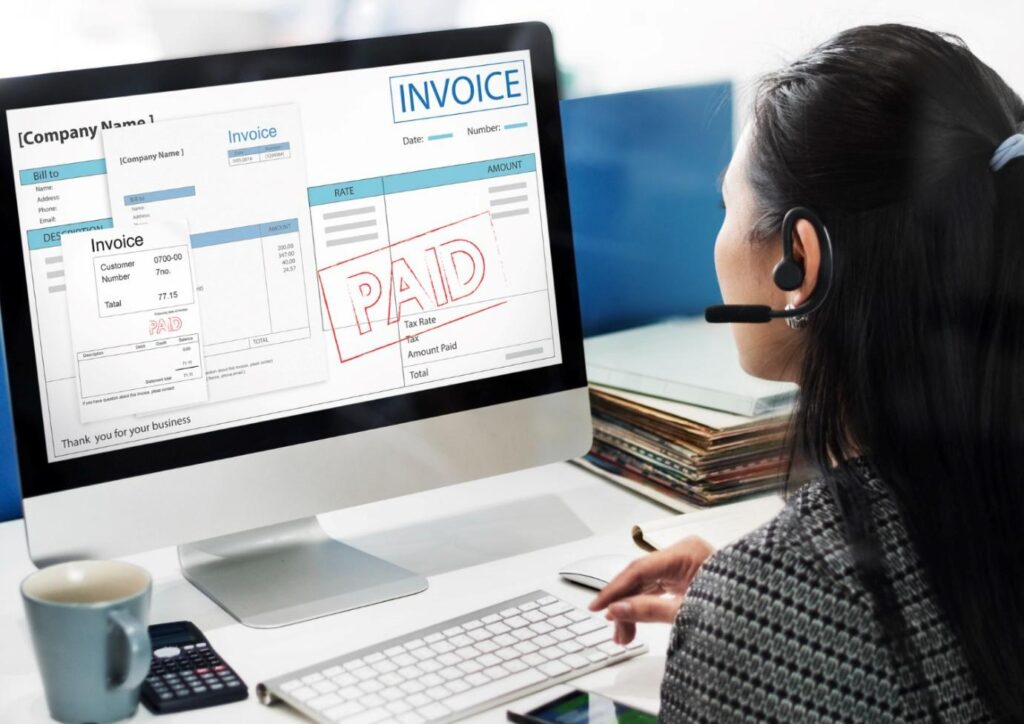
When you run a business, you should be aware of the potential online threats that are always lurking out there to access your data and harm your business. You lock your truck and shop at night. So, why not do the same for your business online? It is not just the big corporations that are a target. Small businesses get hit every day by online attacks because attackers know they don’t take security as seriously as they should.
Explore the different steps you can take to protect your customer info, emails, and invoices without spending a fortune.
Protect Customer Info

Customer info protection is essential to keep your customers’ data safe from not just hackers, but also from internal negligence. It can require addressing areas such as data encryption, password protection, and network security procedures.
All types of customer data need protection. This includes:
- Personal Identifiable Information (PII)
- Financial data
- Personal Health Information (PHI)
- Behavioral data
It is recommended to follow these tips to protect customer info:
- Understanding Your Obligations: Get familiar with the data regulations and laws that apply to your interests.
- Employee Training: Regular team training can help them better understand the importance of protecting customer info and the appropriate protocols.
- Control Data Access: Besides limiting customer info access to select employees, make sure to maintain an elaborate record of access.
Additionally, it is recommended to evaluate your third-party vendors, implement data encryption, update software applications, eliminate data silos, redact any personal information, and conduct regular audits.
https://www.clearimaging.com/marketing-plans
Keeping Invoices Safe

Customer invoices contain sensitive data such as their name, physical address, and payment info. Some of the potential security risks that invoices are open to and the respective steps that you can take to avoid them are as follows:
- Identity Theft: Hackers can access your business or your customers’ names, addresses, tax IDs, or bank accounts from invoices sent through email or other messaging applications. The info can be used to open new accounts, impersonate, or apply for loans. It is recommended to use encrypted platforms when sending invoices.
- Data Breaches: Intended or unintended access or exposure of confidential data on invoices can not only expose such info to hackers, but also damage your business’s reputation and create potential liabilities. It is recommended to use advanced invoice applications that encrypt data and comply with the latest data protection regulations.
- Phishing Scams: These online security threats can affect your invoice security by redirecting to malicious websites and requesting login or payment info. Create policies that require sender identity and contact info verification before emails or messages are opened. The policies should also prevent employees from clicking suspicious links and attachments.
Using Strong Passwords

You should create strong passwords and change them regularly to prevent potential attackers from getting access to software applications and data.
- Have your employees create unique and strong passwords
- Make sure to change the passwords periodically
- Implement multi-factor authentication so that the password is not the only information that allows data access
When the passwords are regularly changed, attackers can no longer rely on an automated process for guessing your password any time they are able to crack one.
https://www.clearimaging.com/portfolio
Keeping Your Wi-Fi Locked

Ensuring network security can provide different levels of data security. This includes:
- Preventing identity theft
- Ensuring customer data safety
- Prolonging the lifespan of your computer systems
Online attackers can gain access to your Wi-Fi connection to study your business and deploy tactics leading to attacking or stealing your business data. It is recommended to implement the following tactics to strengthen your Wi-Fi network’s security:
- Change Default Settings: Don’t use the default Wi-Fi settings because they involve generic login credentials generally visible on your Wi-Fi hardware’s box and available online. Make sure to change the network’s name or SSID and create a unique username and strong password.
- Separate Guest Network from Internal Network: Wi-Fi devices mostly allow you to create a different guest network from the internal business network. This helps prevent visitors and guests from gaining access to the internal network’s username and password.
- Turn on Wi-Fi Encryption: Make sure to turn on Wi-Fi encryption within the default settings. It is usually referred to as WPA or Wi-Fi Protected Access. Modern routers allow you to enable more advanced WPA3 or Wi-Fi Protected Access 3.
Additionally, make sure to implement a router firewall, turn off Wi-Fi when not in use, disable remote access, and ensure the router’s software is always kept up-to-date.
Protecting Against Fake Emails

Scammers can rely on fake emails to steal your passwords and other data. If they succeed, they can gain access to your email or other accounts. Unfortunately, such attackers are persistent and can conduct thousands of phishing attacks every day.
It is recommended to follow these tips to ensure protection against phishing attacks:
- Protect Your Computer Systems: Use advanced antimalware software to protect all your computer systems and ensure they are automatically updated to deal with the latest security threats.
- Protect All Business Phones: Also protect all phones used for business communications using updated security software.
- Use Multi-Factor Authentication: Protect all email accounts used for business communication using multi-factor authentication. Use additional credentials such as a general PIN, passcode, or security question, a one-time verification passcode received via email, text, or authenticator app, and/or scanning your face, retina, or fingerprint.
- Back Up Data: Back up all business data using the 3-2-1 rule, involving multiple media such as external data storage and cloud.
Backing Up Your Files

There are tons of reasons for backing up your data. Before you learn a foolproof way to back up your business data, it is important to know the benefits of the process:
- Protection from Data Loss: Any time your business computer systems crash or their hard drives fail, you will not have to worry about data loss.
- Protection against Malware: If your computer systems get infected with ransomware, your data can be encrypted, preventing your business from accessing it. Data backup can protect against such a form of data loss.
- Quick Data Loss Recovery: Any time you lose data for any reason, backups can help ensure quick recovery. Your business processes can be up and running in no time.
- Remote Access: Data backup can be accessed remotely from anywhere.
Coming to data backup strategies, it is recommended to follow the 3-2-1 rule. The basic principle of this rule is to create 3 different copies of your business data and store them on 2 different types of storage. It further requires maintaining 1 copy off-site. In fact, you can also follow a 3-2-2 rule by maintaining an additional layer of off-site copy for greater safety.
It is recommended to use a combination of the following media types for your data backup strategy:
- External hard Drive: It is recommended to use SSD external drives to maintain data backup because they are much faster and more reliable than HDDs. You can use your business computer systems’ built-in backup applications, third-party backup programs, or manual file copying for data backup.
- USB Flash Drives: USB flash drives offer much smaller storage space compared to external hard drives. So, it is recommended to use them for storing the most important files.
- Optical Media: CDs and DVDs provide a physical data backup medium and can be used with the help of various burner solutions. You can use this media to store important files and documents.
- Cloud Storage: You can use cloud storage either as a primary or secondary data backup source. Choose a reputable cloud storage service provider that offers encryption services. It is easy to access and restore cloud storage data from anywhere. Scalability and high security are the greatest advantages of using this storage media option.
https://www.clearimaging.com/website-plans
Conclusion
When you take these measures to protect your business and data from online threats, you will gain more than security protection. These steps also help you gain peace of mind. Knowing that your business data is protected and backed up can help you focus more of your attention on running your business than worrying about potential threats.
If you need more tips and guidance on protecting your business from potential online threats, reach out to the experts at Clear Imaging, Inc. Contact us at (800) 380-6942 or send us a message using this online form.






